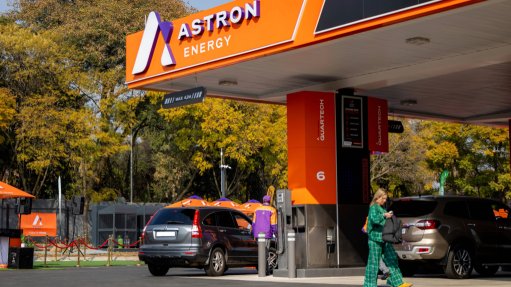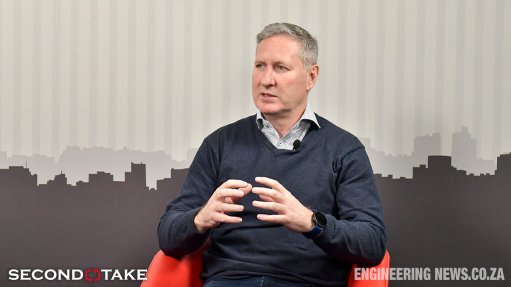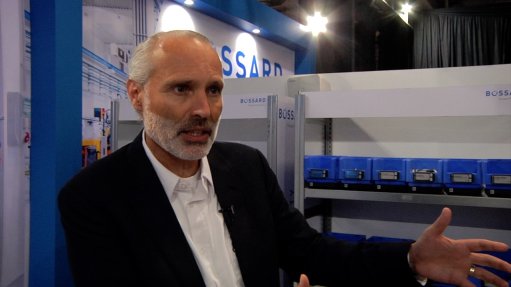African trade and energy developments poised to boost agriculture

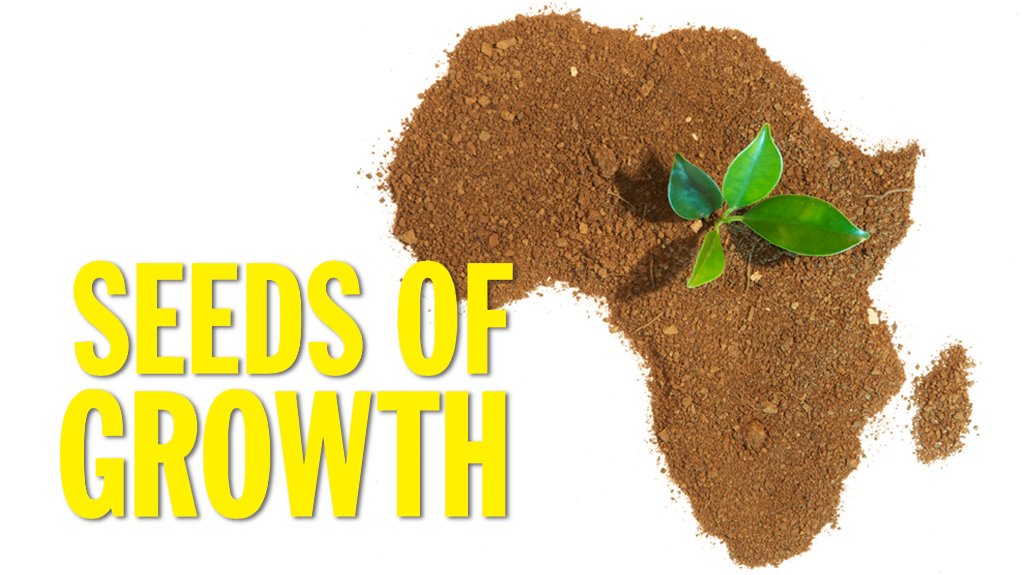
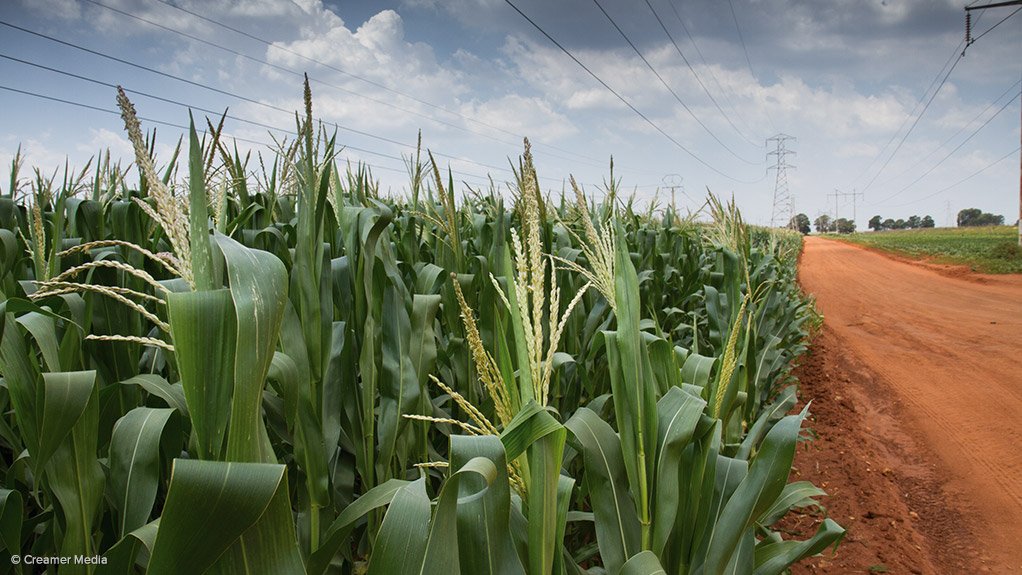

AGRI HOTSPOT Of the 205 agricultural projects that Africa House is tracking on its database, about 50 are being developed in Mozambique
Photo by Creamer Media
XHANTI PAYI For regional integration and trade to work, businesses needed to make use of local partners to scope the market in other countries.
Photo by Creamer Media
Africa is at risk of missing out on immense growth opportunities if it does not soon advance more regional trade and investment at a time when foreign countries are increasingly recognising the value of investing in underdeveloped African countries.
Research and consultancy firm Africa House says Africa is the last continent to provide growth for the world economy, given that it is largely unintegrated, which offers agricultural development opportunities.
“Owing to urbanisation and, for example, investments in liquefied natural gas (LNG), Africa is attracting investment regardless of political will, since the continent offers demographic dividends and growth from a low base,” notes Africa House market insight director Roelof van Tonder.
African countries should, therefore, fully embrace the African Continental Free Trade Area and develop the region “locally” rather than offer it to foreign developers.
Africa House MD Liz Whitehouse explains that, with every development to cater for urbanisation and investments in major development projects, there is, first and foremost, a need for agricultural development, since people need food and agroprocessed products, whether they form part of the increasing population or the staff complements at various major projects.
For example, of the 205 agricultural projects, valued at R27-billion, that Africa House is tracking on its database, about 50 are being developed in Mozambique, which is largely due to the country’s status as an emerging LNG producer.
“As the LNG story emerges, per capita income rises and investment follows in agriculture, especially in rural communities,” Van Tonder highlights, adding that Mozambique has one fertile floodplain across its coast and only 10% of it is being cultivated.
Mozambique has a few outgrower programmes, which involve a central buying entity that helps small farmers with, for example, seeds, land or other necessities, he adds.
Outgrower programmes address the common problems of financing and lack of infrastructure or technology that often limit African countries’ agricultural development and competitiveness.
“Mozambique Tobacco, based in Tete province, has a whole ecosystem of people who contribute to making an outgrower programme successful and there is, consequently, natural development of the value chain. In turn, value chain development could assist with regional trade and integration,” Whitehouse points out.
She adds that agriculture is a good way for corporates to get involved in corporate social investment projects and the continent will see more agricultural development once more corporates get on board with major development projects in Africa.
Further, Van Tonder agrees that more intra-Africa trade will result in more investors being interested in the continent. He says South Africa has the opportunity to significantly advance regional trade, as it is not trading as much as it could with neighbouring countries.
Whitehouse tells Engineering News & Mining Weekly that South Africa’s exports of agricultural and processed food products to sub-Saharan African countries were valued at R58-billion last year, while its imports from these countries totalled only R16-billion.
“South Africa tends not to regard the region as a supplier of goods and services. South Africa has tended to prefer trade with Latin America, Europe and the Far East as sources of supply . . . largely owing to the infrastructure of many African countries’ having been designed to serve colonial masters, which entails the infrastructure being centred on exploiting and exporting. There is no integrating infrastructure.”
She adds that most of the institutions in Africa are linked to the countries that colonised them. For example, agricultural trade in West Africa is conducted mainly with France and other French-speaking countries, which hampers regional integration and trade.
Whitehouse further laments that regional integration is a two-way street and “unless we start providing markets for what is being produced in the region, we will not build relationships”.
Mozambique Focus
The Mozambique government initiated the Promove Agribiz project, valued at about $33-million, in March last year. It will be implemented in ten districts in the Nampula and Zambezia provinces.
Africa House says the project will run for five years and will focus on creating an environment favourable to agrifood value chains, while promoting sustainable and market-orientated agriculture.
The Mozambique government has signed five financing agreements with the European Union to advance trade, biodiversity, agrobusiness and transport associated with the Promove project.
“The specific objectives are to improve food and nutrition security, and the resilience of smallholder farmers through climate-smart and nutrition-sensitive agriculture development in the provinces, while enhancing rural competitiveness through increased participation of small and medium-sized enterprises in economic activities,” Africa House states.
The Mozambique government also launched the Inclusive Agrifood Value Chain Development Programme, valued at $120-million. The programme prioritises agricultural production in rural areas of the country, covering 75 districts in the country’s ten provinces.
The programme’s focus is on addressing the factors limiting selected horticulture commodities under irrigation, red meat, poultry, cassava and legumes, including increasing productivity and institutional strength.
Facilitating Entry
A major limiting factor to agricultural trade and regional integration among sub-Saharan Africa’s 49 countries is knowledge of the market and local relationships.
Nascence Advisory & Research head and economist Xhanti Payi stated at an Africa House-organised event in January that established and well-intending African companies had often gone into new markets and opened stores without doing research on local needs and preferences.
For example, clothing retailer Ackermans opened a store in Kenya, stocking it with the same merchandise that is sold in South Africa, but the store failed because Kenyans are generally slender and taller and, culturally, tend to dress more formally, as opposed to the retailer’s casual-style clothing.
He added that, for regional integration and trade to work, businesses needed to make use of local partners to scope the market in another country.
“We want Africa industrialised and the only way to do that is to form strategic partnerships. I recommend that governments use foreign missions to map the needs and market traits of desired trading countries. We need to map for our own interest, as South Africa, and inform businesses what the opportunities are.”
Farmer financing company Afgri Group Holdings executive director Mulco Manyana also stated at the event that, as a starting point, businesses should engage organisations such as Afgri, which had established networks with local businesses in many countries, as well as informal business relationships with government officials.
He cited South African farmers’ having cultivated a massive maize field in Congo Brazzaville to supply maize to the local rural market as an example. The staple food in the country is, however, not maize, as is the case in South Africa, but rather a root vegetable called cassava. This would have been known had prior market research been done or had a local partner been consulted, he added.
The Role of the Value Chain
Manyana discussed integrating South Africa’s agricultural value chain into the Southern Africa region at the event.
He said agriculture remained one of the most important industries in the world, employing 20% of the global workforce and affecting everyone. It, therefore, presented an enormous opportunity for investors.
The agri value chain encompasses the flow of products, knowledge and information between farmers and consumers. Value chains offer the opportunity to capture added value at each stage of the production, marketing and consumption process.
“Value chains are all about human interactions. They are about linkages in the sector.
Trade is currently characterised by goods and services produced in different geological locations. Businesses currently manage to source inputs from across the globe. Value chains are recognised for their ability to contribute towards propoor initiatives,” Manyana explained.
He pointed out that, for example, value chains could assist poor smallholder farmers to progress to bigger commercial operations.
Manyana noted that regional value chain integration had not yet gained momentum in the agriculture sector.
However, he said that the Southern African Development Community and the Department of Trade, Industry and Competition were promoting integration into value chains in the region.
The challenges with the regional integration of value chains include political interference, inadequate infrastructure, policy, skills and technology and climate change.
Manyana highlighted, for example, that issued permits held no power once import bans were imposed, which was an example of political interference.
Another issue is inadequate infrastructure in terms of travel and logistics, in addition to the infrastructure that is integral to farming.
Manyana said well-intended policies often limited the actual development of agricultural projects or regional integration.
“For example, policy often requires that employment and procurement be made locally, but sometimes there are not enough skilled people and technologies available for the project.”
He added that Southern Africa is endowed with an abundance of raw materials, and South Africa could play a lead role in the region’s agroprocessing value chain without being overly authoritative.
“There may be increased demand for agricultural products once regional value chains are better integrated and, therefore, allow for increased trade.”
Van Tonder and Whitehouse conclude that the days of “dipping in and out” of Africa are “long gone” and that business has adopted a long-term strategy on the continent.
Comments
Announcements
What's On
Subscribe to improve your user experience...
Option 1 (equivalent of R125 a month):
Receive a weekly copy of Creamer Media's Engineering News & Mining Weekly magazine
(print copy for those in South Africa and e-magazine for those outside of South Africa)
Receive daily email newsletters
Access to full search results
Access archive of magazine back copies
Access to Projects in Progress
Access to ONE Research Report of your choice in PDF format
Option 2 (equivalent of R375 a month):
All benefits from Option 1
PLUS
Access to Creamer Media's Research Channel Africa for ALL Research Reports, in PDF format, on various industrial and mining sectors
including Electricity; Water; Energy Transition; Hydrogen; Roads, Rail and Ports; Coal; Gold; Platinum; Battery Metals; etc.
Already a subscriber?
Forgotten your password?
Receive weekly copy of Creamer Media's Engineering News & Mining Weekly magazine (print copy for those in South Africa and e-magazine for those outside of South Africa)
➕
Recieve daily email newsletters
➕
Access to full search results
➕
Access archive of magazine back copies
➕
Access to Projects in Progress
➕
Access to ONE Research Report of your choice in PDF format
RESEARCH CHANNEL AFRICA
R4500 (equivalent of R375 a month)
SUBSCRIBEAll benefits from Option 1
➕
Access to Creamer Media's Research Channel Africa for ALL Research Reports on various industrial and mining sectors, in PDF format, including on:
Electricity
➕
Water
➕
Energy Transition
➕
Hydrogen
➕
Roads, Rail and Ports
➕
Coal
➕
Gold
➕
Platinum
➕
Battery Metals
➕
etc.
Receive all benefits from Option 1 or Option 2 delivered to numerous people at your company
➕
Multiple User names and Passwords for simultaneous log-ins
➕
Intranet integration access to all in your organisation














